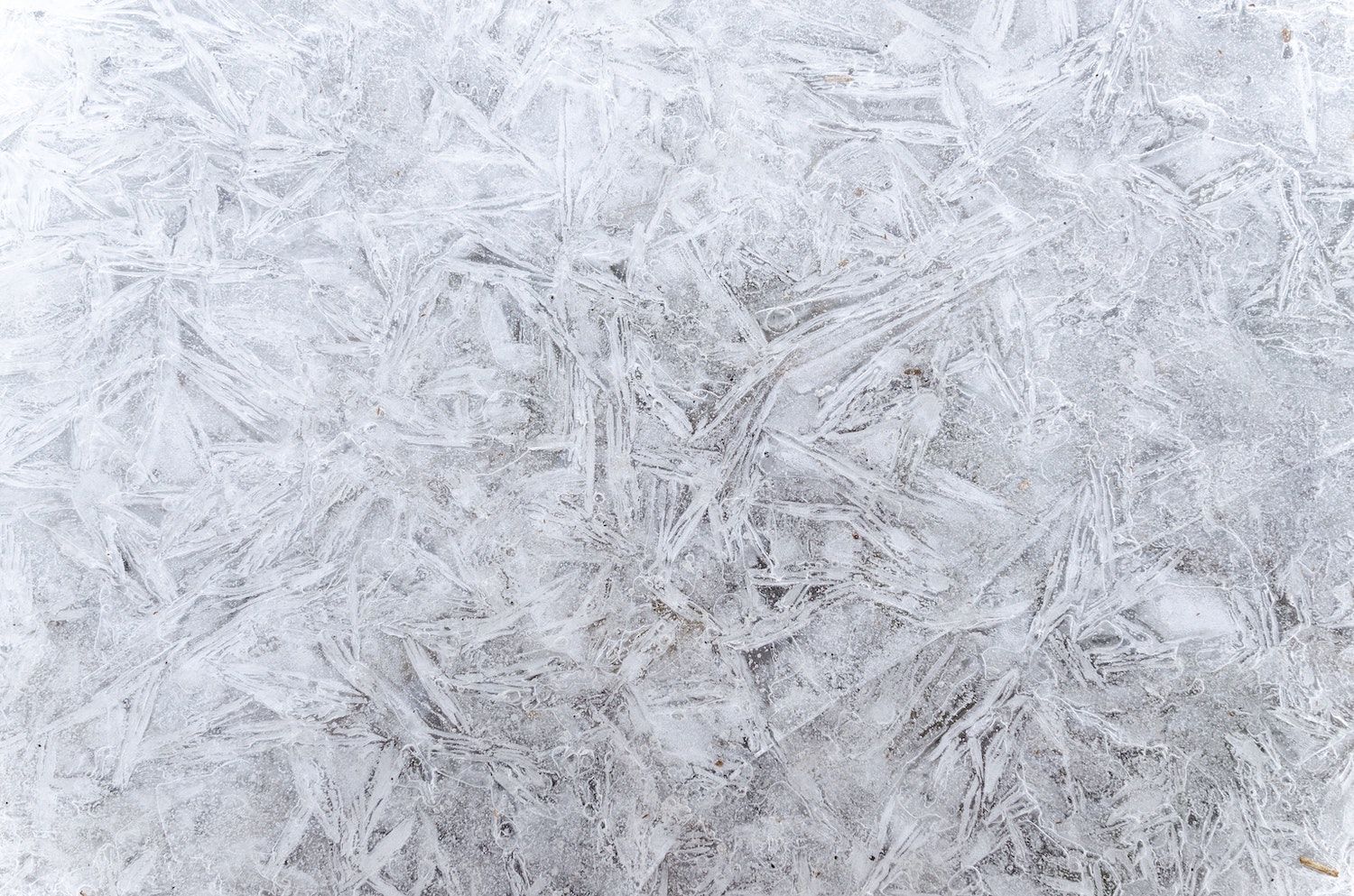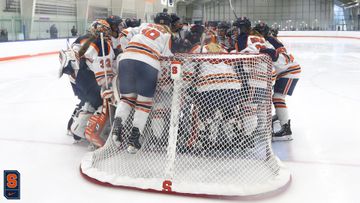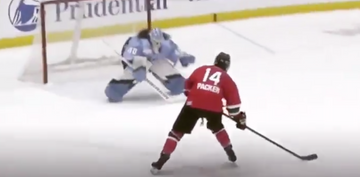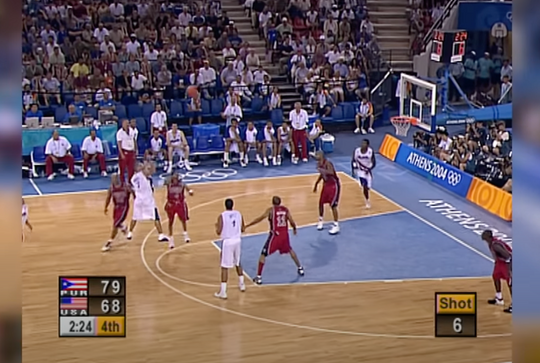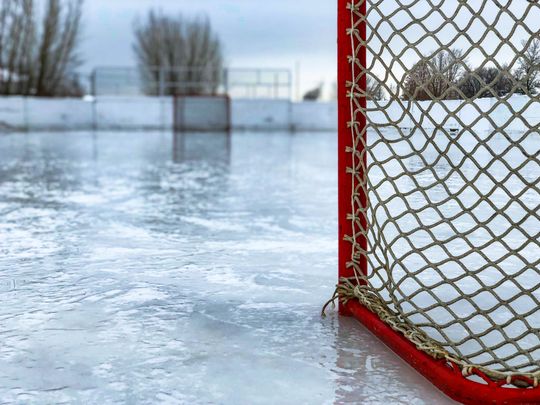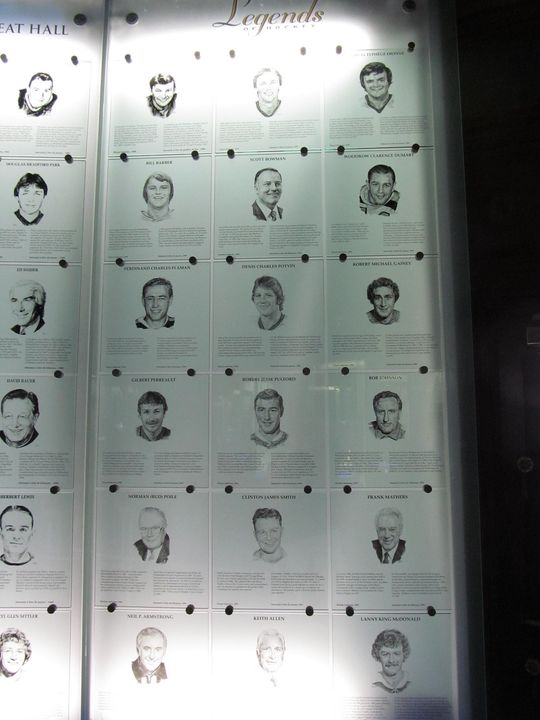It has always been time to talk about this, but we have been fucking up.
Most socially conscious sports fans (and hopefully most readers of the Victory Press) know that racism is as American as apple pie or as Canadian as maple syrup. Both of these countries were founded by white colonizers who genuinely believed that nonwhite people were subhuman and often wrote this down, but they (like today's racists) have the ability to rhetorically frame their racism as something positive or good for society. If you are interested in hearing how white people discussed nonwhite people in popular "intellectual" writings of the time, there's a great podcast called Citations Needed that did their season 1 finale about this very thing:
Essentially, white people have for years been framing the extremely racist status quo that they aspire to as "for society's own good", which not only serves as a convenient fallback so they can refer to people who challenge their racism as "disruptive", but also probably allows them to sleep at night without dwelling on the fact that they're enormous racists. This logic also easily translates to people who are homophobic, transphobic, misogynistic, and otherwise bigoted. Unsurprisingly, bigots tend to travel in the same circles and share much of the same bigotry, so people who are racist are also often also homophobic, transphobic, misogynistic, and, let's be real, straight-up imperialists, fascists, and white supremacists. (They also incidentally tend to think that "the free market" is an unbiased arbiter that works great for determining people's rights and well-being, but I digress.)
Sports become an interesting vector for people's bigotry because sports are, at their most basic foundations, games that can be enjoyed by anyone, because you can be involved in them and experience them in a variety of ways -- as athletes, as spectators, as supporters/fans, as team staff, as writers, as photographers, as statisticians and mathematicians, as scouts, as coaches, as family, as community members. Sports can bring communities together, but they also create their own communities. And communities inherently have political concerns within them. Popular sports reflect the political concerns and social norms of the societies they exist in. This is observable and factually true.
Unfortunately, while engagement in any community is inherently not apolitical, people often like to insist that it is, sometimes due to an urge to preserve that community space, but often due to an urge to preserve the status quo and not allow these spaces to become more inclusive.
The overwhelming whiteness of women's hockey is a prime example of this, wherein women of color who do participate in the sport are often tokenized or sidelined, and the progressive or social justice aspect of the sports is portrayed as pure (cisgender) feminism, without any explicit acknowledgement of its whiteness, its cis-ness, or its failure to become more intersectional and inclusive.
The lack of acknowledgement of existing power structures in women's hockey, or the insistence that they are "natural" and therefore good and normal, is pure white colonialism and white supremacy. Today, we can recognize overt racism for what it is, but people (mostly white people) often turn a blind eye to passive racism and bigotry, which is characterized by exclusion that is more passive: exclusion in rhetoric, exclusion in representation, and behind-the-scenes gatekeeping. This passive exclusion is the topsoil that protects deep-seated bigotry in white colonialist societies -- that allows it to emerge more overtly at convenient times throughout our history.
Now is an example of one of those times in both the United States and Canada. The prevalence of social media has changed how we experience commentary and actions from public figures, too, so anyone who holds a bigoted view has the ability to amplify it to the entire world. This also opens them up to criticism. Political and cultural leadership in North America is not operating in good faith to all. It's operating in direct opposition to marginalized voices and those who might demand better, more ethical representation from those in power. In other words, it's called oppression. We can fight it perhaps more vocally these days thanks to the Internet. But it's a tale as old as time.
It's unfortunate but perhaps predictable that women's hockey has grown in popularity alongside the rise of white supremacy and associated fascism in North America. Hockey's media presence has for a century been overwhelmingly white, and its fanbase as well as its player population trends whiter and wealthier than fanbases of other sports. Marginalized voices are harder to uplift in hockey because at every level it lacks prominent voices from marginalized communities -- including in women's hockey. The contributions to the sport by women of color, by trans men and trans women, by queer folks are actively minimized by the status quo of "acceptable whiteness."
In so many words: it is absolutely not a coincidence that a white cis woman who is married to a white NFL player and who has called Colin Kaepernick's anthem protests "disgusting" is rapidly becoming the most recognizable face in women's hockey. Kendall Coyne Schofield's participation in the NHL All-Star Skills Competition, and subsequent deal to become an analyst with NHL Network, brought a lot of ire from people who don't believe women's hockey is good or that Coyne Schofield is a talented athlete -- you know, just your regular misogynists. But it also has drawn criticism from people who believe that Coyne Schofield should not be hailed as the most prominent, mainstream representation of a sport that has a history of erasing its nonwhite, non-cishet voices.
This isn't really about Coyne Schofield herself; it's about what women's hockey can offer beyond someone like her, and its potential to be more inclusive. But these things can be easily pushed off to the wayside in order to "grow the game." That's the party line in women's sports, in niche or smaller sports. We've all been told for a very long time that we're "stronger together", but milquetoast passivity towards casual bigotry not only regresses us towards amoral centrism, it insulates and protects bigots. It protects hatred. It lets hate fly under the radar, and that insidious hatred is what keeps diverse voices from being uplifted within the sport. That doesn't make us stronger together. It makes us passive aggressive towards each other, discourages direct action and direct criticism, and means that we can't be honest with each other about the game we love.
This passive aggressiveness, this holding pattern, gets called "feminism." Because there is still an alarming amount of people who think that feminism is about unquestioningly supporting white cis women, even when they are showing their lack of regard for other marginalized communities. This "feminism" is just white supremacy by another name, masquerading as a social justice movement or as representation when it really only works for white, straight, cis women. When you call this good enough, it perpetuates bigotry by claiming to subvert it. In short, you're full of shit.
A sport is only really as good as the community that surrounds it -- arguably, the community aspect is why most of us participate at all, as fans or as players or as writers or as anything. Demanding better is out of love.
